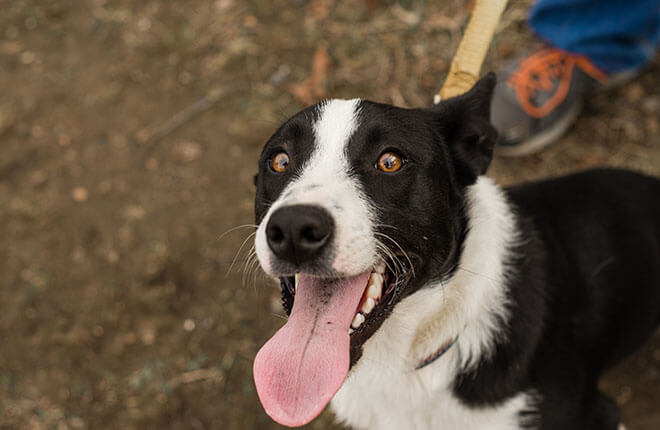You prepared for the changes a new pet would bring to your life. You found a new dog or cat, brought them into your home, and showered them with love. But in those first days, weeks, or even months, you might still find yourself asking, "Oh no, what have I done?"
Having a pet can be challenging, and the experience can bring a more significant change than you expected. It’s normal — especially for first-timers — to feel a bit overwhelmed. If you’re questioning your decision or wondering how to cope with feelings of anxiety, regret, or guilt, please understand that these feelings are quite common and they almost always pass with a bit of time. If at any time, though, you feel that you cannot meet the basic needs of your pet or that you are a danger to your pet, please seek the help of a veterinarian or local, trusted animal welfare organization.
The Challenges of Having a New Pet
Naturally, there’s a transition period that you, your family, and your new pet will go through. This involves adjusting your schedule to meet the physical and emotional needs of your pet, including demands on your time and attention. There’s also the anxiety a pet feels as they adapt to a new environment and new relationships with two-legged and four-legged family members.
Whatever the challenges, they are usually temporary or will naturally become a tolerable — and even enjoyable — part of your everyday life as you and your pet adjust to one another. Any issues that don’t resolve over time can be addressed with the help of your veterinarian and dedicated behavior and/or training work.

The Bright Side of a New Pet
Science supports the fact that having a pet can help with your mental and physical well-being. They get us out exercising even when we’re feeling lazy, make us laugh when we didn’t think we had anything to laugh about, get us up in the morning when we would rather cover our head with the blanket, and can be the reason to take better care of ourselves.
Coping with Feelings of Remorse Over Your New Pet
It’s important to know that you are not alone. As with any significant, life-changing decision, you’re likely to face a mix of emotions — excitement, doubt, or even regret. Just remember, these feelings usually pass with a little time and experience. And there’s a lot you can do to get you through this understandable rough patch:
- Know the rule of 3. As a rule of thumb, it takes around three months for a pet to settle into a new home, though sometimes the transition can be shorter or longer. Usually, the first few days are hectic, and often by day three you might feel overwhelmed. As a cat or dog is adjusting to their new environment, they may be more shy or timid than normal. After about three weeks, they’re getting used to the new routine and starting to show their true personality. It’s around the three-month mark that they really start to feel at home and problematic behaviors tend to improve.
- Be realistic. A new pet is hard work — they eat, go to the bathroom, shed, play, and need affection. They also cost money and take up space in your home. Go into pet adoption with your eyes open, understanding that it represents a life change and not just a temporary adjustment.
- Manage your own expectations. Like people, cats and dogs have different personalities. They also adjust to new things at their own speed. While new owners hope for an instant bond and a quick settling in, that may not be the case with a particular pet. Try and think about things from your new pet’s perspective and give yourself time to get used to each other and the new life you’ve started together.
- Share the responsibility. If possible, “divide and conquer” by delegating tasks to other willing family members. This will make your new pet’s care more manageable and not a burden to just one person.
- Look for resources. Whatever challenge you’re facing, you can bet that someone, somewhere has been through something similar. If you’re having a specific issue with your new pet, research it online, post about it in a social media pet group, or schedule an appointment with a veterinarian or animal behavior consultant. The key is to use reliable and trustworthy resources. Stay away from any advice that involves punishment or negative reinforcement, advice that doesn’t seem to make sense, or that simply doesn’t feel right.
- Give it time. There’s no set schedule for a new pet to settle into their new life. The same goes for you. Don’t get caught up in “we should be past this by now.” Work through things slowly, at a pace both you and your pet are comfortable with. You are building toward a lifetime of happiness, so a few extra days, weeks, or months is well worth it.
When Things Just Aren’t Working Out With Your New Pet
It’s possible, as the week and months go by, that you’ll realize the pet you adopted just isn’t the right one for your household (or your household is not the right one for the pet). It’s natural to feel crummy if you come to this realization, but it doesn’t make you a bad or uncaring person, nor does it mean you have a bad pet. In fact, it often means you have the mutual best interests of you and your pet in mind. The simple fact is that not every pet can be happy in every home. Finding another home may be in the best interest of the pet.
The key is to continue to keep your pet’s best interests at heart. The best course of action may involve returning the pet to the animal shelter or rescue organization that you adopted from (some adoption contracts stipulate that you return the pet if things aren’t going well). If this isn’t the case or isn’t possible, rehoming the pet yourself may be the best choice. This approach allows you to stay involved in the process and may ease some of your discomfort. Reach out to your local animal shelter or animal welfare organization for guidance. And please stay away from selling the pet online or giving them away through a public listing like Craigslist; there are many people out there with less-than-admirable intentions looking for animals where no questions will be asked. Keep your pet’s future happiness in mind as your look to find them a wonderful new home you can feel good about.
Many new pet owners experience a moment of panic and even regret during the first few months with their new cat or dog. Thankfully, with some time, patience, and compassion for both you and your pet, these feelings can be overcome, and you’ll be well on your way to a lifetime of happiness with your new best friend.
ZPC-01225R1



